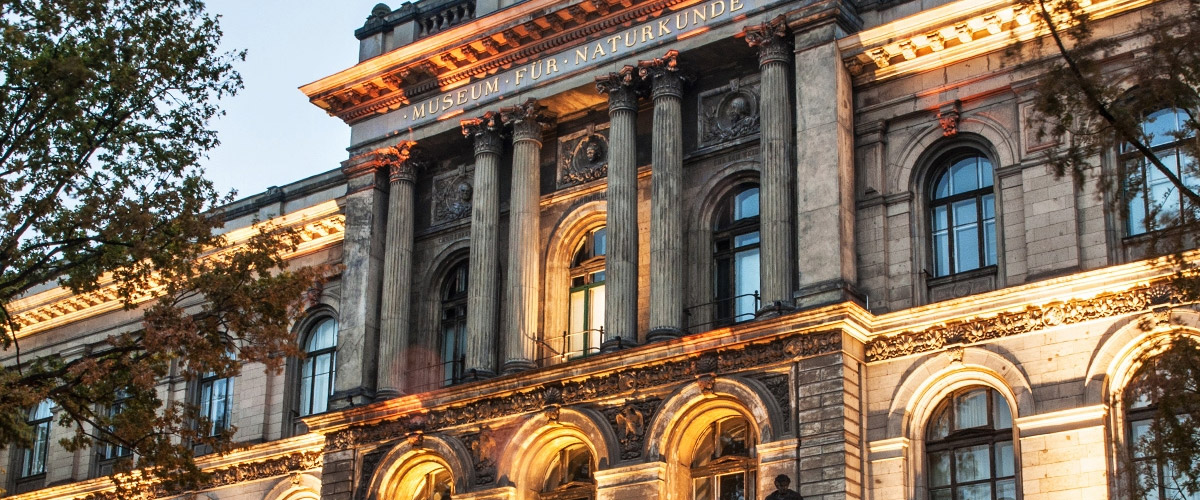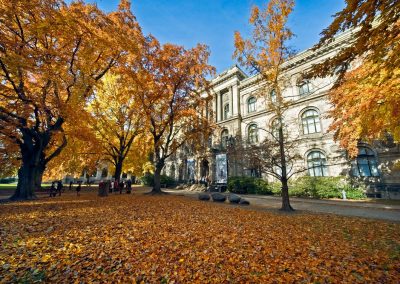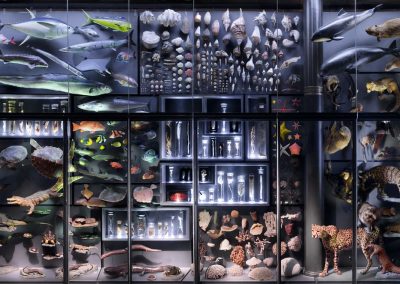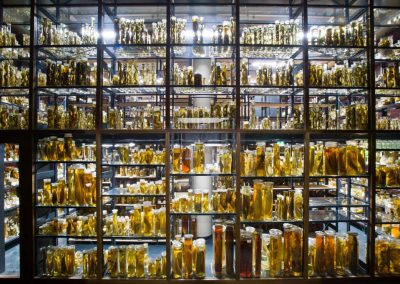The Museum für Naturkunde – Leibniz Institute for Evolution and Biodiversity Science is an integrated research museum within the Leibniz Association. It is one of the most important research institutions worldwide in the areas of biological and geological evolution and biodiversity.
We study life and planet Earth, maintaining a dialogue with people. Our mission, our vision, our strategy and our structure make our Museum an excellent research museum. We have research partners in Berlin, Germany and approximately 60 other countries. Over 800,000 visitors per year, as well as steadily increasing participation in educational and other events show that we have become an innovative communication centre that helps shape the scientific and social dialogue about the future of our earth – worldwide.
Alongside knowledge transfer, research and our collections are the main pillars of the Museum’s work. The collections are a unique cultural asset and inextricably linked to our research. They comprise over 30 million items covering zoology palaeontology, geology and mineralogy and are of highest scientific and historical importance.
The permanent exhibitions and the regular special exhibitions give the public an insight into current research at the Museum. They highlight original research objects, and visitors are encouraged and inspired to find their own route into research and experience ‘evolution in action’ rather than following a given pathway.
Our Principal Investigator participating in the EvoCell Program
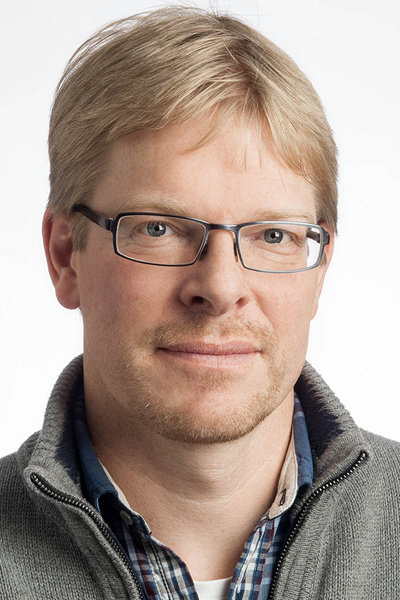
Carsten Lüter
Curator of Marine Invertebrates
After obtaining my PhD in Zoology at the Georg-August-Universität Göttingen, Germany in 1998 I worked as a postdoctoral fellow at Universität Bielefeld, Germany and University of Glasgow, Scotland, UK. Since 2001 I am curator of the marine invertebrate collection and head of the morphological laboratories at Museum für Naturkunde, Berlin, Germany. Since 2009 I am a private lecturer at Humboldt-Universität zu Berlin.
My research interests cover many aspects of animal evolution, in particular the evolution of organ systems in marine invertebrates (lophophorates) and the biomineralization of the brachiopod shell. Working in one of the largest natural history museums in Europe, I have also been involved in the development of permanent and special exhibitions and various public outreach activities.
Photo: © Carola Radke

